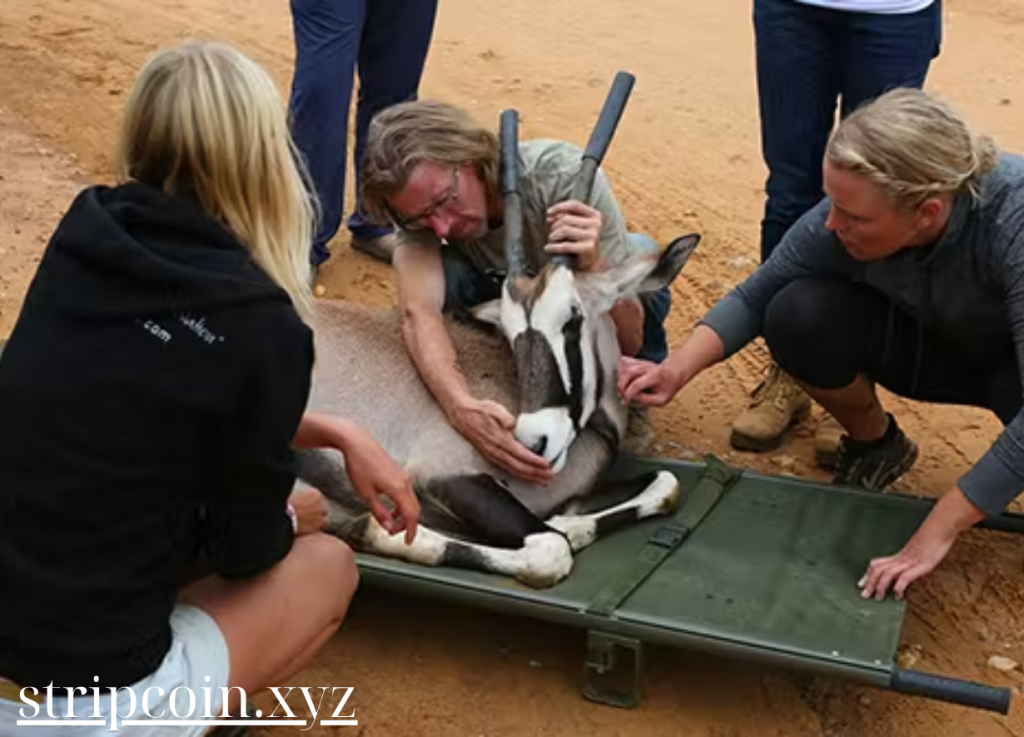Wildlife Encounters
Wildlife Conservation Trips: Combine Adventure with Conservation Efforts
Introduction: Traveling with Purpose
In a world increasingly aware of the environmental challenges facing our planet, more travelers are seeking opportunities to make a positive impact while exploring nature’s beauty. Wildlife conservation trips allow adventurers to combine the thrill of travel with the chance to actively contribute to the preservation of endangered species and ecosystems. These experiences go beyond traditional vacations, offering travelers hands-on involvement in wildlife protection, habitat restoration, and community-based conservation projects.
Whether it’s tracking elephants in Africa, helping to rehabilitate orangutans in Borneo, or protecting marine life in the Galápagos Islands, conservation trips offer a rewarding way to engage with wildlife while supporting vital efforts to safeguard our planet’s biodiversity. In this guide, we’ll explore some of the best wildlife conservation trips around the world, where adventure meets purpose.
1. Elephant Conservation in Thailand: Protecting Gentle Giants
Thailand is one of the top destinations for travelers who want to work with elephants, offering ethical conservation programs that focus on protecting these gentle giants from exploitation. Organizations like Elephant Nature Park near Chiang Mai provide sanctuary for elephants that have been rescued from the tourism and logging industries. Here, visitors can spend time caring for elephants in a natural environment, learning about the challenges facing these endangered animals, and assisting in efforts to promote ethical tourism practices.
As a participant, you can help prepare food for the elephants, bathe them in the river, and engage in habitat restoration projects that support the park’s long-term conservation goals. This experience offers a meaningful way to connect with elephants and contribute to their well-being.
Key Activities:
- Feed and bathe rescued elephants in a sanctuary setting
- Learn about the ethical treatment of elephants and support anti-poaching initiatives
- Participate in reforestation projects to restore elephant habitats
2. Sea Turtle Conservation in Costa Rica: Saving Marine Life
Costa Rica is renowned for its rich biodiversity and commitment to conservation, making it a prime destination for eco-conscious travelers. One of the most rewarding conservation opportunities here is working with sea turtles, particularly along the country’s Pacific and Caribbean coasts. Organizations like The Sea Turtle Conservancy offer volunteer programs where travelers can assist with sea turtle conservation efforts, including protecting nesting sites, monitoring hatchlings, and collecting data on turtle behavior.
The experience of watching a mother sea turtle lay her eggs on a moonlit beach or seeing baby turtles make their first journey to the ocean is unforgettable. By participating in these programs, you actively contribute to the survival of endangered species, such as the leatherback and green sea turtles.
Key Activities:
- Patrol beaches to protect nesting sea turtles from poachers
- Assist with tagging and monitoring sea turtles for scientific research
- Release hatchlings into the ocean and observe their journey
3. Orangutan Rehabilitation in Borneo: Safeguarding the Rainforest
Borneo’s dense rainforests are home to some of the world’s most endangered species, including orangutans. Conservation programs in Malaysian Borneo, such as those run by the Orangutan Foundation or Sepilok Orangutan Rehabilitation Centre, allow travelers to play an active role in the rehabilitation of these critically endangered primates. Volunteers can help care for orphaned and injured orangutans, support forest restoration efforts, and raise awareness of the threats facing their habitats, such as deforestation and illegal wildlife trade.
By working alongside experienced conservationists, you’ll gain a deep understanding of the complex challenges facing orangutan populations and contribute directly to their protection and survival.
Key Activities:
- Help care for orphaned orangutans, assisting with feeding and rehabilitation
- Participate in forest restoration projects to rebuild lost habitats
- Raise awareness through community education programs
4. Marine Conservation in the Galápagos Islands: Protecting Ocean Ecosystems
The Galápagos Islands are a world-renowned destination for wildlife enthusiasts, offering some of the most unique and diverse ecosystems on the planet. However, the islands’ delicate marine environments face growing threats from overfishing, pollution, and climate change. Through marine conservation programs, such as those organized by Galápagos Conservancy or Earthwatch, travelers can contribute to efforts to protect these ecosystems and the species that rely on them.
Volunteers may assist with projects ranging from monitoring sea lion populations to restoring coral reefs and controlling invasive species. Snorkeling or diving in the Galápagos’ crystal-clear waters offers an incredible opportunity to witness marine life up close while actively contributing to its conservation.
Key Activities:
- Assist in the restoration of coral reefs and marine habitats
- Monitor marine species, including sea lions, sea turtles, and hammerhead sharks
- Help control invasive species that threaten the ecosystem
5. Rhino Conservation in South Africa: Battling Poaching in the Wild
South Africa is home to some of the last remaining populations of the critically endangered black and white rhinoceros. Poaching, driven by the illegal trade in rhino horns, has decimated rhino populations across Africa, making conservation efforts more urgent than ever. Rhino conservation programs, such as those offered by Care for Wild Rhino Sanctuary or Volunteer Southern Africa, allow travelers to support anti-poaching initiatives and rhino rehabilitation efforts in protected reserves.
Participants in these programs may help track rhinos, assist with anti-poaching patrols, and support efforts to relocate rhinos to safer areas. These experiences not only provide a close-up view of one of Africa’s most iconic species but also contribute to the fight against wildlife trafficking.
Key Activities:
- Join anti-poaching patrols to protect rhinos in the wild
- Monitor rhino behavior and health in protected reserves
- Support rhino relocation efforts to create safer habitats
6. Snow Leopard Conservation in Mongolia: Protecting the Ghosts of the Mountains
Mongolia’s rugged mountains are home to one of the most elusive and endangered predators on Earth: the snow leopard. Known as the “ghosts of the mountains,” snow leopards are rarely seen, but conservation programs in Mongolia offer travelers a chance to assist in efforts to protect these majestic cats. Organizations like the Snow Leopard Trust work with local communities to monitor snow leopard populations, reduce human-wildlife conflict, and promote sustainable herding practices.
As a volunteer, you can help set up camera traps to monitor snow leopards, participate in wildlife surveys, and engage with local herders to reduce the impact of livestock on the snow leopard’s habitat. This experience combines adventure with vital conservation work in one of the world’s most remote and beautiful landscapes.
Key Activities:
- Set up camera traps to monitor snow leopards in the wild
- Assist with wildlife surveys and track snow leopard movements
- Work with local herders to promote sustainable practices and reduce human-wildlife conflict
7. Gorilla Conservation in Uganda: Protecting Africa’s Gentle Giants
Uganda’s Bwindi Impenetrable Forest and Mgahinga National Park are two of the few places in the world where travelers can encounter endangered mountain gorillas in the wild. Gorilla trekking in Uganda not only offers a once-in-a-lifetime wildlife experience but also supports conservation efforts that protect these magnificent primates. Conservation trips organized by groups like Conservation Through Public Health or Gorilla Doctors allow travelers to contribute directly to the preservation of gorilla habitats and participate in community-based conservation programs.
Volunteers can help track gorillas, monitor their health, and assist with efforts to reduce human-gorilla conflict. These programs provide a unique opportunity to learn about the delicate balance between wildlife conservation and community development.
Key Activities:
- Assist in gorilla tracking and monitoring within protected reserves
- Participate in community-based conservation programs to support local livelihoods
- Educate local communities on the importance of gorilla conservation
8. Penguin Conservation in Antarctica: Explore the Frozen Frontier
For adventurous travelers, Antarctica offers the ultimate wildlife conservation experience. The frozen continent is home to several species of penguins, including the iconic emperor penguin, as well as seals, whales, and albatrosses. Conservation trips to Antarctica, often organized by research groups or eco-tourism companies like Antarctic Logistics & Expeditions, offer travelers the chance to observe these animals in their natural habitats while contributing to scientific research and environmental protection efforts.
Volunteers may assist with penguin population studies, collect data on climate change, or support clean-up efforts to protect the pristine environment. These trips not only offer the adventure of exploring one of the most remote places on Earth but also help ensure the future of Antarctica’s fragile ecosystems.
Key Activities:
- Participate in penguin population monitoring and behavior studies
- Assist with environmental research on climate change and its impact on wildlife
- Support conservation clean-up efforts to protect Antarctic ecosystems
Conclusion: Travel with Purpose on a Wildlife Conservation Trip
Wildlife conservation trips offer the perfect blend of adventure and purpose, allowing travelers to immerse themselves in nature while making a meaningful contribution to the protection of endangered species and ecosystems. From tracking snow leopards in Mongolia to rehabilitating orangutans in Borneo, these experiences provide unforgettable encounters with wildlife while supporting vital conservation efforts around the world.
By choosing to travel responsibly, you not only enjoy unique, hands-on experiences with wildlife but also contribute to the long-term survival of species and the preservation of our planet’s natural heritage.

